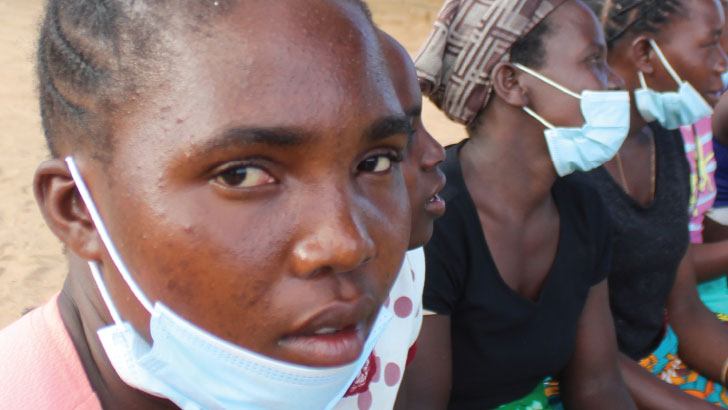Putting GBV in spotlight
Malawi is one of the beneficiaries of the Spotlight Initiative, the world’s largest targeted programme to eliminate gender-related violence.
Joyce Mtonga of Stonya Village in Mzimba believes that if the initiative came some months late, she would now be raising an unwanted child.
The mother of one has been married for three years, but feels a second child would have sunk the family into abject poverty.
She narrates: “My husband and I have been struggling to raise the child. He depends on piecework while I am just a housewife.
“I suggested to him that we start using family planning methods, but he wanted more children.”

To avoid conceiving a second child, Mtonga, 22, would fake an illness to discourage her husband from sleeping with her.
However, the decision cost the 22-year-old Mtonga dearly. Her husband would beat her up and accuse her of sleeping with other men.
“He threatened to divorce me if I stuck to my decision not to have another child. Marriage turned into hell for me,” she narrates.
Mtonga’s case is not isolated. In Malawi, a country with male-dominated norms and values, many women cannot make decisions over their bodies and sexuality without the consent of men.
Common crime
Due to lack of bodily autonomy and integrity, many women have resigned to fate for any opposition is often punished by violent beatings and expulsion.
As Malawi commemorates the 16 Days of Activism against Gender-based Violence (GBV), the burden of the vice remains scary.
The United Nations estimates that one in three Malawian women experiences physical and sexual violence in their lifetime.
Such statistics undermine the country’s gains in the fight against GBV. They constitute a glaring drawback to the national progress to achieve the global Sustainable Development Goals to end poverty and gender inequalities by 2030.
However, the Spotlight Initiative has turned Mtonga’s plight into a story of hope.
The global initiative supported by the European Union (EU) in partnership with UN agencies seeks to eliminate all forms of violence against women and girls.
ActionAid Malawi is implementing the programme in Mzimba and Ntchisi districts, creating safe spaces where girls and young women gather to share their GBV experiences, discuss possible solutions and mentor each other.
Through the mentorship and awareness campaigns by girls and women trained for the purpose, at least 75 safe spaces have been established in the two districts since June 2020. Each safe space enrols about 30 girls and young women.
For GBV survivors personified by Mtonga, the safe space mentorship model came at the right time.
She belongs to Chimwemwe Safe Space in her area. The peer-to-peer mentorship platform has helped her acquire vital knowledge and confidence on how young women can confront GBV at household and community levels.
Mtonga says: “The good thing is the project has full support of the chiefs and this offered me more courage to confront my husband on the need to start using family planning methods to create ample time to take care of our first child.
“My husband is now very supportive. He allows me to use family planning methods after realising that what he used to do was not part of culture but gender-based violence. He also supports me in my doughnuts business as one way of improving our family’s well-being.”
Lessons for action
Speaking when she toured Spotlight Initiative’s impact areas in Mzimba, acting Head of EU Delegation in Malawi, Aurelie Valtat, said she was impressed with the progress registered in Mzimba and five other districts where the initiative is underway.
She said the achievements and lessons from the visit will help improve programming in the second phase of the initiative underway in Mzimba, Nkhata Bay, Ntchisi, Dowa, Nsanje and Machinga.
Minister of Gender, Community Development, Children and Social Services Patricia Kaliati hailed the EU, UN and their partners for complementing government’s efforts to create a GBV-free Malawi.
“As government, we need to look at how best we can upscale the Spotlight Initiative projects to all the districts in the country. We need to deal with gender-based violence because it limits citizens’ participation in development activities,” she states.





